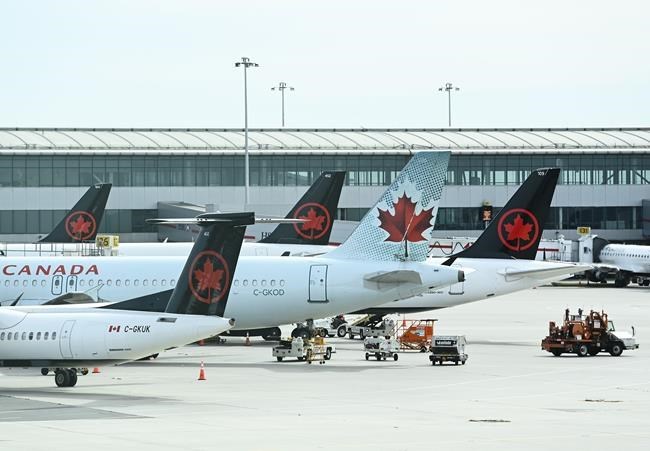The federal government's blockbuster financial aid plan for Air Canada amid the COVID-19 pandemic shares similarities — and stark differences — with its contribution to the bailout of two Detroit automakers during the global financial crisis more than a decade ago.
Here's a comparison of the two multibillion-dollar rescue deals:
Pre-crisis standing
Canada's largest airline was on a much stronger financial footing ahead of the COVID-19 crisis than the car makers were before the financial meltdown.
Air Canada made a profit of $1.5 billion the year before the pandemic, whereas many large automakers regularly posted losses before the recession.
"Air Canada was in a great financial position," said Jacques Roy, a professor of transport management at HEC Montreal business school. "They had experienced five years of profits."
Yet the automotive sector had suffered from years of slumping sales.
Experts say the industry as a whole was in dire need of restructuring, including shrinking its manufacturing footprint, closing dealerships and discontinuing brands.
Cost cutting
The federal and Ontario governments rejected initial restructuring plans put forward by automakers, suggesting more cost reductions were needed before public dollars would be available.
However, Air Canada had already undergone aggressive cost cutting before striking a deal with Ottawa, said Robert Kokonis, president and managing director of Toronto-based aviation consulting firm AirTrav Inc.
"They embarked on major cost-cutting to extract not just low hanging fruit but tougher-to-get fruit from their operations," he said. "They went to aircraft leasing companies looking for deferrals, they asked for delayed deliveries, they laid off staff."
In contrast, Ottawa turned down the first appeal for aid from the automakers because there had not been enough concessions, Kokonis said.
Bailout vs. financial aid
Ottawa's pandemic rescue package for Air Canada is "probably as close to commercial terms as you're going to get," said Chris Murray of ATB Capital Markets.
As well as low-interest loans, the agreement will see the federal government take an equity stake in the airline but requires Air Canada to refund passengers for cancelled flights, cap executive compensation at $1 million and restore service to regional airports.
"You've got a lender that really is engaged in making sure Air Canada can resume service and ... the company is using this as a bridge to get back to normal operations."
The structure of the deal contrasts with the bailout offered to automakers, said Aaron Wudrick, federal director of the Canadian Taxpayers Federation.
"There are more strings attached with respect to share buybacks and corporate compensation," he said. "Those are probably included because of the lessons learned during the financial crisis."
This report by The Canadian Press was first published April 14, 2021.
Companies in this story: (TSX:AC).
Brett Bundale, The Canadian Press



